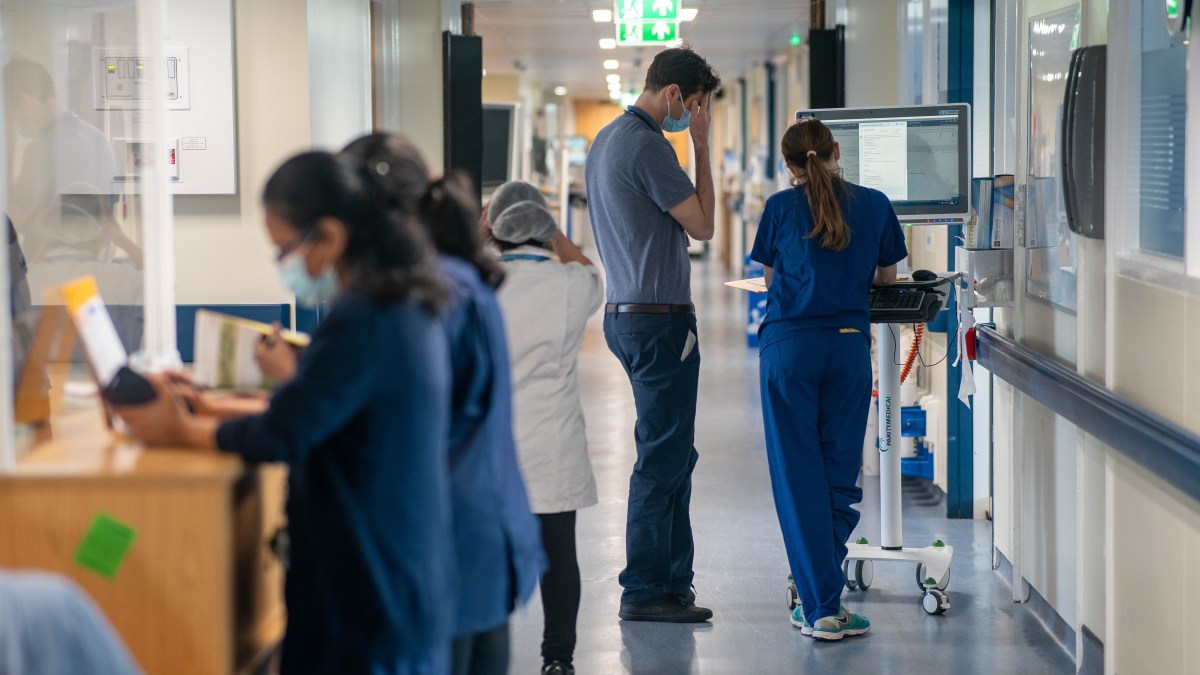Health
Junior Doctor Strikes Threaten NHS with £1 Billion Loss

The ongoing strikes by junior doctors in the United Kingdom could potentially cost the National Health Service (NHS) approximately £1 billion over the next three years. This alarming projection highlights the significant financial burden that industrial action can impose on an already strained healthcare system.
According to analysis from The Health Foundation, the NHS faces an even greater challenge: a looming £20 billion funding gap if it does not meet its productivity targets. The combination of increased costs from strikes and the potential shortfall in funding presents a serious threat to the sustainability of health services in the UK.
The strikes, which began earlier this year, are a response to ongoing disputes over pay and working conditions. Junior doctors have expressed concerns about their salaries, which they argue have not kept pace with inflation. The impact of these strikes has been felt widely, with thousands of procedures postponed and significant delays in patient care reported across various hospitals.
As the situation develops, the NHS is under pressure to find solutions that will not only address the immediate impacts of the strikes but also ensure long-term stability. The financial implications of failing to resolve these disputes are considerable, particularly as the NHS aims to recover from the pressures experienced during the COVID-19 pandemic.
The Health Foundation’s analysis suggests that without strategic interventions and improvements in productivity, the NHS may struggle to maintain its current level of service. The organization has emphasized the need for urgent discussions between healthcare leaders and junior doctors to negotiate a resolution that addresses both pay and working conditions.
In light of these developments, the future of the NHS remains uncertain. The potential for further strikes and continued disruption could lead to additional financial strain, complicating the already challenging landscape of health service delivery in the UK. The government and health authorities must act swiftly to avert a crisis that could have far-reaching effects on public health and wellbeing.
As negotiations continue, both patients and healthcare workers are closely monitoring the situation, hoping for a resolution that prioritizes the needs of the NHS while ensuring fair treatment for those who dedicate their careers to healthcare.
-

 Entertainment3 months ago
Entertainment3 months agoAnn Ming Reflects on ITV’s ‘I Fought the Law’ Drama
-

 Entertainment4 months ago
Entertainment4 months agoKate Garraway Sells £2 Million Home Amid Financial Struggles
-

 Health3 months ago
Health3 months agoKatie Price Faces New Health Concerns After Cancer Symptoms Resurface
-

 Entertainment3 months ago
Entertainment3 months agoCoronation Street’s Carl Webster Faces Trouble with New Affairs
-

 Entertainment3 months ago
Entertainment3 months agoWhere is Tinder Swindler Simon Leviev? Latest Updates Revealed
-

 Entertainment4 months ago
Entertainment4 months agoMarkiplier Addresses AI Controversy During Livestream Response
-

 Science1 month ago
Science1 month agoBrian Cox Addresses Claims of Alien Probe in 3I/ATLAS Discovery
-

 Entertainment4 months ago
Entertainment4 months agoKim Cattrall Posts Cryptic Message After HBO’s Sequel Cancellation
-

 Entertainment3 months ago
Entertainment3 months agoOlivia Attwood Opens Up About Fallout with Former Best Friend
-

 Entertainment6 days ago
Entertainment6 days agoCoronation Street Fans React as Todd Faces Heartbreaking Choice
-

 Entertainment3 months ago
Entertainment3 months agoMasterChef Faces Turmoil as Tom Kerridge Withdraws from Hosting Role
-

 Entertainment4 months ago
Entertainment4 months agoSpeculation Surrounds Home and Away as Cast Departures Mount





















